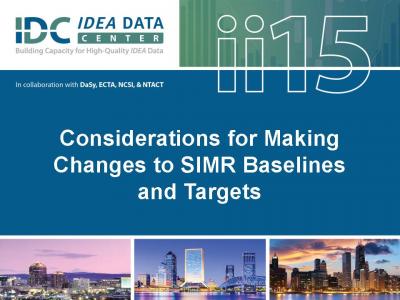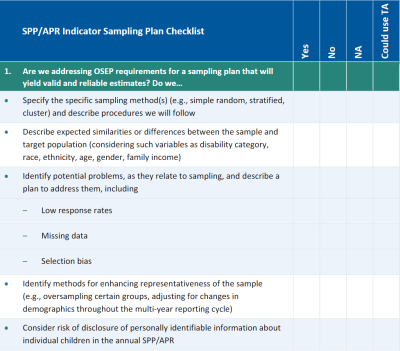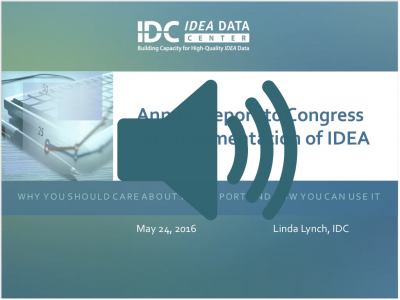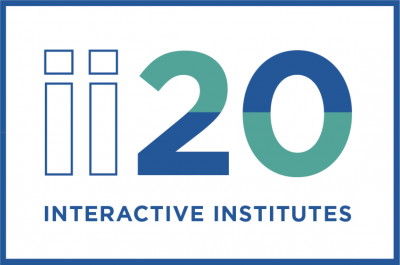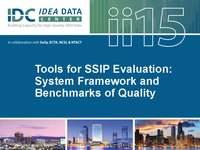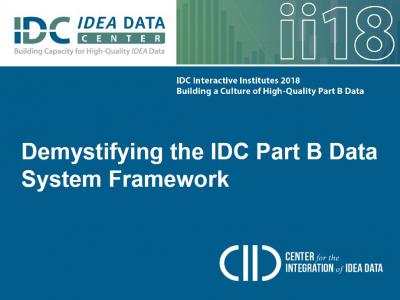Site Search
Results 1 - 7 of 49
Format: Applications and Spreadsheets
Business Rules Documentation ProtocolThe Business Rules Documentation Protocol is a customizable Excel template that states can use for documenting, recording, and communicating existing business rules or data quality validation checks they perform during the collection and validation of IDEA Part B data.
Format: Presentations
Considerations for Making Changes to SIMR Baselines and TargetsThe presentation examines the reasons why states would change baselines or targets for their SSIPs. Topics addressed include changes in assessments, data collection methods, and data quality. Participants discussed and provided input into an IDC white paper on the topic. Currently, the white paper is in draft form and undergoing revisions based on input from the field. The published paper will be posted to the IDC Resource Library and affiliated as a related resource to the handout already posted for this session.
Format: Quick Reference
SPP/APR Indicator Sampling Plan ChecklistStates are allowed to use sampling for collecting data for select Part B State Performance Plan/Annual Performance Report indicators. Sampling can provide an effective means for targeting resources for data collection and improving data quality. However, there are important requirements that states must consider when designing and implementing their sampling plans. States can use this interactive self-assessment tool to determine whether their state’s sampling plan addresses Office of Special Education Programs sampling requirements for best practice and to identify action steps to improve their sampling procedures.
Format: Recordings
Annual Report to Congress on Implementation of IDEA WebinarThe webinar featured the purpose and history of the Annual Report to Congress on the Implementation of the Individuals with Disabilities Education Act, its current organization and content, links to the report and its data sources, and suggestions for how participants can use the report. The webinar was designed so that participants would have a greater understanding of why it is important to work to improve the quality of IDEA-related data by seeing how the U.S. Department of Education uses IDEA data to meet an annual statutory requirement to report to Congress;. In addition, it was designed to help participants become familiar with a key resource on state and national IDEA data and related information and prompt them to think about how they might use the resource.
Format: Trainings
ii20 Session Presentations and HandoutsThe Interactive Institutes 2020 – Building and Sustaining a Culture of High-Quality Data provided opportunities for participants to take a deep dive into data quality topics to learn about data culture change. Participants were able to discover best practices to improve data collection, reporting, analysis, and use. They also engaged with peers and TA providers about trending data quality topics. Each session presented powerful ideas and actionable plans to improve work processes and data quality.
Format: Presentations
Tools for SSIP Evaluation: System Framework and Benchmarks of QualityThe presentation provides practical suggestions and guidance to help states begin their evaluation work. States can learn about tools for (1) building their evaluation team and (2) measuring improvements to system infrastructure.
Format: Presentations
Demystifying the IDC Part B Data System FrameworkThis workshop provided participants firsthand experience working with the IDEA Data Center Part B Data System Framework to explore factors impacting data quality or ways to expand capacity in the SEA. Because the Framework is based on a whole systems approach, its use can encourage discussion and provide direction for how to tackle everyday problems and issues. Through hands-on exercises, participants explored different approaches to how states might apply the Framework to improvement efforts, planning, or organizational activities.



